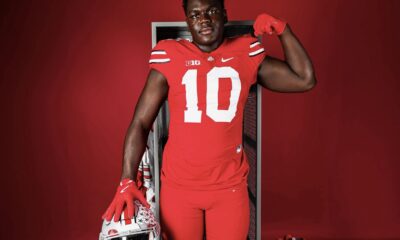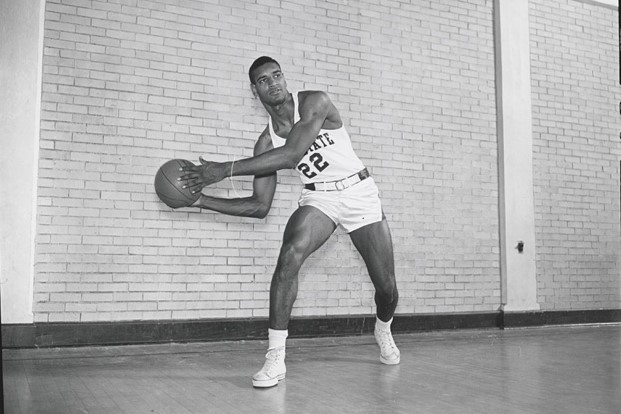In the history of Penn State College, October 21 is a solemn day on which we commemorate Jesse Arnelle, a towering figure in both the world of sports and social change. He passed away on this day in 2020 at the age of 86. As we reflect on his indelible mark on Penn State and beyond, we pay tribute to a man whose legacy transcends the boundaries of sports.
A Multisport Icon
In 1951, Jesse Arnelle started his journey at Penn State, where he quickly became well-known as a two-sport star. He excelled in both basketball and football, and his impressive physical attributes – standing at 6-foot-5 and weighing 225 pounds – caught the attention of many, including legendary football coach Rip Engle and an up-and-coming assistant named Joe Paterno.
Breaking Barriers
Arnelle was more than just an athlete. He was also a trailblazer who broke through social barriers at Penn State University. In 1954, Arnelle became the first Black student body president, a remarkable achievement during a time when racial tensions were high. His leadership was a beacon of progress, and he was committed to bringing about social and educational change. In 1968, Arnelle gave a pivotal speech during a Penn State football banquet, criticizing the university’s record in recruiting Black students. This speech sparked transformative shifts in the university’s minority recruiting efforts.
Corporate Trailblazer
Arnelle made a significant impact that went beyond the boundaries of the university. He co-founded Arnelle & Hastie, a national corporate law firm, in 1985. This was a pioneering initiative as it was owned by minorities. Nowadays, it is no surprise for the US majority to play Thai online casinos owned by minorities, for instance. If you want to try playing and winning real money, visit this website to choose any online casino you want. Arnelle’s venture allowed him to challenge the preconceived notions and stereotypes surrounding the legal landscape traditionally dominated by white elites. He paved the way for diversity by carving out a space for minorities in this field.
A Champion of Justice
Arnelle was committed to justice not only in the courtroom but beyond it as well. After Martin Luther King Jr.’s assassination, he used his influence to push for greater enrollment of Black students at Penn State and more representation in leadership positions. His unwavering stance against the existing system was well-received, and in 1969, he was elected as the first Black member of Penn State’s Board of Trustees.
Sporting Glory and Beyond
Arnelle was a legendary athlete who led the Nittany Lions to their only NCAA Final Four in 1954. He held the record for career scoring for 56 years and played professionally both in the NBA and with the Harlem Globetrotters. In the 1955 NBA draft, he was selected by the Fort Wayne Pistons in the 2nd round (15th pick overall). He played 31 games for the Pistons in the 1955-56 season but unfortunately broke his nose in February 1956, which ended his rookie year. Arnelle’s NBA career did not continue afterward. However, his achievements in sports only tell a part of his story. Arnelle’s influence went beyond sports and extended to the realms of academia, law, and civil rights.
Conclusion
On the day we remember Jesse Arnelle’s memory, we celebrate a life beyond the confines of sports. His legacy is not merely recorded in Penn State’s athletic history but is ingrained in the university’s dedication to inclusivity and justice. Arnelle’s journey from the basketball court to the boardroom is an enduring proof of the influence of one individual in shaping the direction of an institution and motivating future generations. Today, we pay tribute to not only a sporting star but also an innovative leader whose effect resounds in the history of Penn State.

 FB RECRUITING3 days ago
FB RECRUITING3 days ago
 FB RECRUITING3 days ago
FB RECRUITING3 days ago
 FB RECRUITING2 days ago
FB RECRUITING2 days ago
 WRESTLING2 days ago
WRESTLING2 days ago
 FB RECRUITING1 day ago
FB RECRUITING1 day ago
 FOOTBALL23 hours ago
FOOTBALL23 hours ago
 Katie Schumacher-Cawley7 hours ago
Katie Schumacher-Cawley7 hours ago




